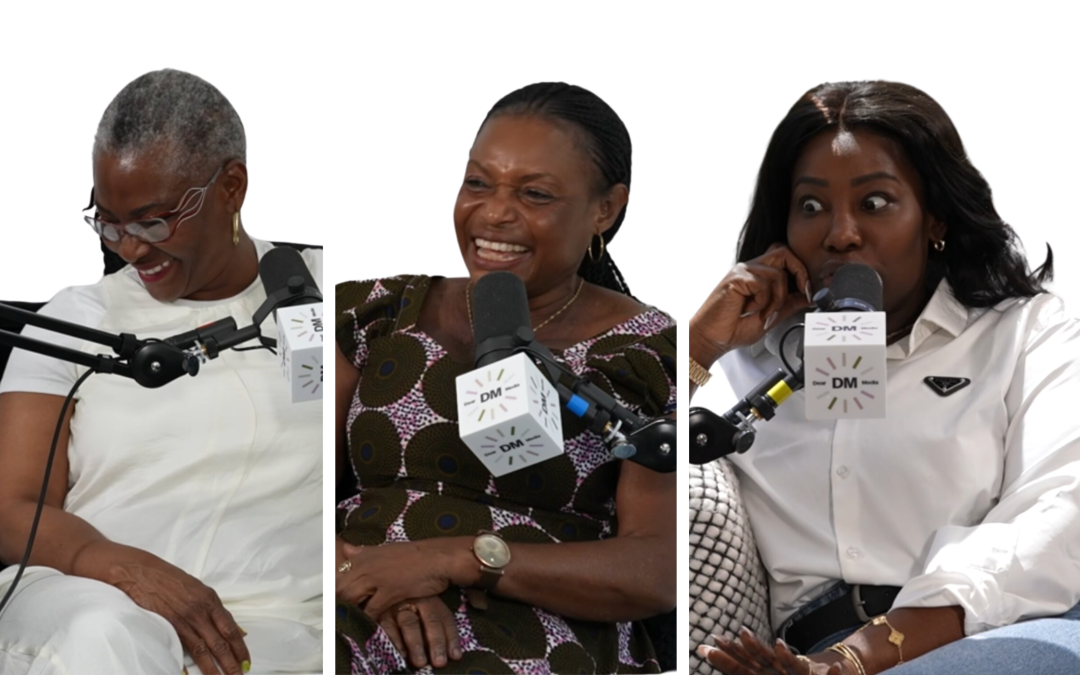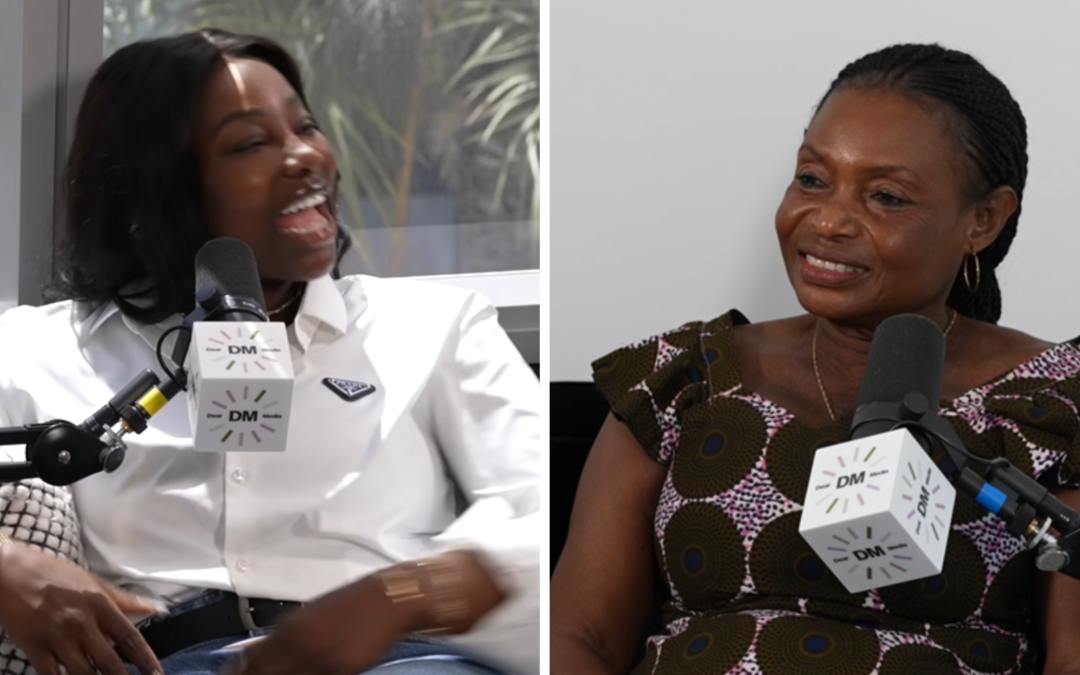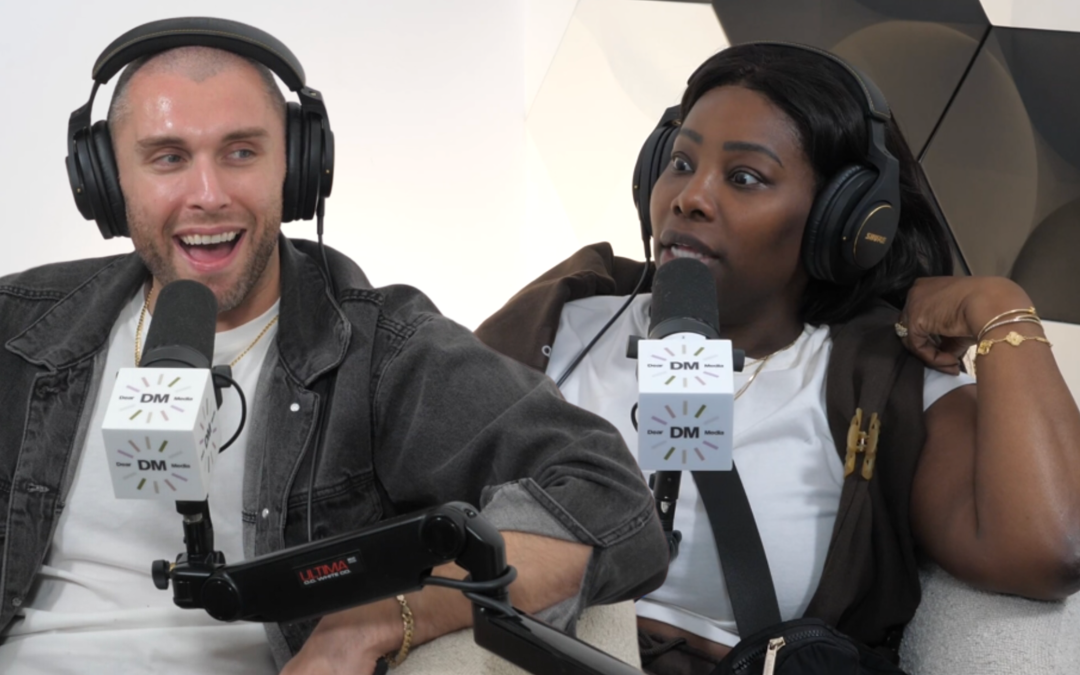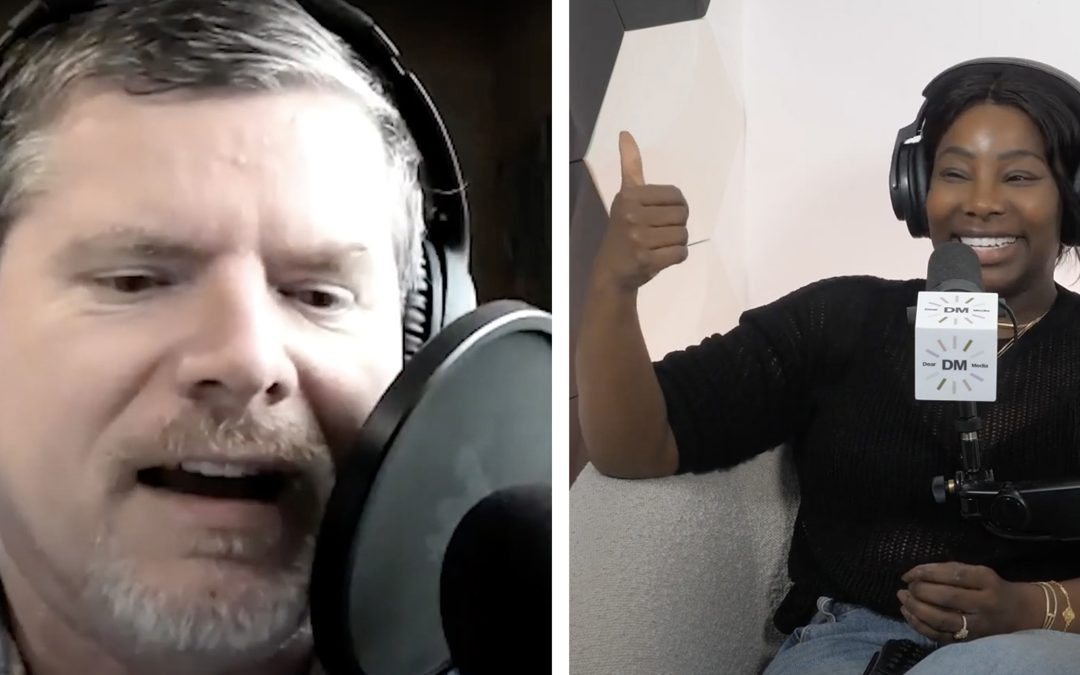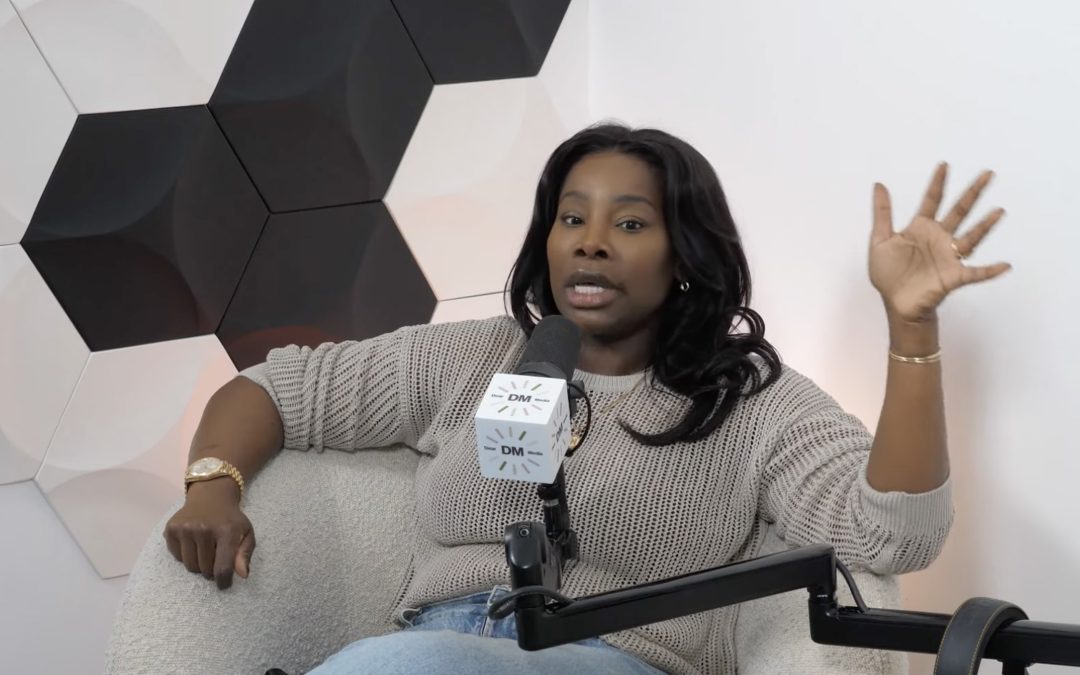This whole season we have been talking about surrendering and the peace we can acquire from doing so. In the process of letting go in my own life, I’ve had to confront my habit of over-explaining. To put is simply, I’m not explaining myself, friend!
Are you with me? You know when someone in your life drops the ball and you feel as if you need to equip them with more information so it won’t happen again? Or they are misunderstanding you so you feel as if they need more from you to understand?
Well, that just isn’t it – at least not all the time. Letting others learn the lessons they’re meant to learn is freeing and necessary for everyone involved. Thanks for being here for this chat. Let’s get into it!
So friends, I want to tell you about something that has changed my life and that I really think is going to create major shifts in yours. Now, I’ll start with a little bit of a story. So if you’ve read Nothing is Missing, which is my New York Times bestselling memoir, I talk a lot about my childhood and how I grew up with a father who, uh, was narcissistic and, um, You know, through his own traumas of his own and honestly, I will say some of it I think is kind of cultural and but that’s a conversation for another day, but in African culture, there’s this concept called tiger parenting.
Tiger parenting is the American westernized term for it, and you may be familiar with it, but tiger parenting is basically you are raising adults, not children. And so what that means conceptually is that your sole job as a parent is to raise these children by treating them like tiny adults.
So, I personally believe that it’s a little of column A, a little of column B, right? You want to make sure your kids are being taught the skills that they need to have in order to survive in the world, right? We don’t want to raise entitled little brats who are walking around feeling like everyone owes them something and that they aren’t responsible to anyone.
But, because, you know, evolution, growing up in America, if you will, or just better exposure to the value of therapy, I really understand the importance of empathy and emotional intelligence and that’s a huge part of how I raise my kids as well, is making sure they understand that they have privilege and that they’re, they need to extend others grace and that they need to spend time listening and hearing what other people are dealing with.
And so. All of those things being said, I didn’t grow up with any of that. And I think a lot of us can relate to that, whether you are, have old school Southern parents or parents that grew up just a flat out different generation or immigrant parents. You know, tiger parenting is really, really, really common.
And what ends up being the outcome of tiger parenting can affect kids in different ways. So if you were the elder child, if, and you guys, y’all can Google this. They’re so, So much like documentation and just it’s amazing the evolution of information that’s coming out in relation to this Because and I hate to say it but our generation’s getting older, right?
So we’re finally the ones writing the papers and we’re writing about what matters to us But if you were the elder child This style of parenting whether it was full blown narcissism or just a cultural clash of values and parenting methods but what happens is that You’ve become almost parentified and parentification is basically your job is to stand in the role of the parent.
So it’s not just this sort of latchkey kid concept, where, you know, you came home, your parents dropped you off, and you, you know, kind of took care of yourself and fended for yourself after school, and maybe then you played games, or ran down to the lake, or climbed trees. No, this is like full on parent to father.
Which means you raised your siblings and sometimes you had to, especially in immigrant households, act as a translator or go pay bills or you know, maybe even get a job early. And you know, that leads to tons of different traumas. However, if you were the elder child in particular, or the only child, a lot of the trauma related things that come from this style of parenting or exposure.
are celebrated in our society. We are seen as being the hyper productive, perfectionist, overachievers. I mean, you’re the ones with eight Ph. D. s or you’re the super moms or you’re highly functional people. But we usually also have like a crippling anxiety, you’re overworked, you have an inclination to be burnt out, you are, over committed, you know, all the time and you over deliver often, but usually at the expense of your own wellness.
Now, I know we jumped right in there. I’m going to pause for a sec. Some of you are hearing all of that and saying, Nicole. Ease up. I did not ask to be attacked on this episode. Okay? Okay, I get it. This is me. Right? Or you’re married to this person. Or you are siblings with this person. Or you see this person at work.
Now, another thing that happens as a byproduct of this sort of, uh, It is a form of trauma. Traumatic background is even though the outcome in your life may be that you have the house and the car and all these things, you may suffer in terms of balance and joy and energy and wellness, but one of the other things that is a common outcome that I’m starting to learn about that is just changing my life is These people are, and I say these people, that sounds so weird, me, me included, hand raised, but, uh, people who’ve had exposure to this sort of background often are, um, huge people pleasers.
And people pleasers are, uh, people who worry so much about, again, that perfectionism aspect, making sure that they’re making people happy, they’re, uh, people with flexi boundaries, you know, so their boundaries are one where they are more than willing to, you know, sacrifice themselves on the behalf of others.
easily subjected to being manipulated and or feeling heavily guilty if they aren’t meeting others expectations, whether or not that is in alignment with their own. it is a really unfortunate byproduct because you basically are that person who is such a hard worker and then people who may be less than that.
thin hard workers will attach themselves to you and like, leech off of you, right? And I know right now some of y’all are nodding your head like, no, not me. Yes, I’m exhausted. And one of the things that I learned is a very common attribute that I really want to focus on today that I’ve been working on in the past, I’d say like six months or so, um, is overexplaining, like overexplaining your feelings, overexplaining, what you mean, uh, over explaining when you, when you feel like you’re misunderstood.
And again, heavy emphasis on feel like you’re misunderstood. And I say that we’ll actually just address that part now. A lot of times in this situation, you may feel like you’re misunderstood when people understand you perfectly well. That was a sentence my therapist said to me. And when I tell you, it changed my life.
It changed my life. My therapist was like, Nicole, I want you to know that people can understand you perfectly well. They can know that you are right. They can understand that what you’re saying is clear. They can understand that what you’re saying makes sense and they can still be choosing to misunderstand you and do whatever they want to do because that’s just what they want to do.
When I tell you the freedom I had from that, I’m going to say it again briefly for those of y’all who didn’t catch it the first time, People can know that what you are saying makes sense. That it is practical and that you are correct and it is even in their interest to do the thing you are telling them to do and they can still do what they want to do, cause harm to themselves and others and not care and look you in the face and act like you’re wrong.
I was like, how is that possible? That doesn’t seem logical. What are you talking about? No, sometimes people just want to do what they want to do. They don’t care if it makes sense or not. And when I tell you, I was so freed when I, when it really just like sank in. Like, no, some people just like mess. And for those of y’all who are under 40, I hope that this really is meeting you at the right time and you get to benefit from the over 40 crowd.
Because over 40 crowd, this is something that just comes into your life in general. Because over 40, you get a certain level of tired and exhausted where you don’t have the energy to even get into it with people as much. So the blessing I’ve had in the past six months is as I’m You know, healthily in this 40 year old club, I’m a natural energy of doing less with others hot mess, right?
But this over explaining thing that I used to do looked like this. I would have Disagreements with people in my life, various relationships, anything from family to people I’m like dating or, employees, you know, where people would come to me and they would disappoint, right?
Disappoint or let me down, or they would fail to do something that they agreed to do, or they would fail to do something that is generally understood by the masses as a moral or ethical obligation, right? Like, this is just, and I’m just talking about things that are like, not of question, right? Like, oh, you said you would pay that bill on time?
Obviously you would do it. You did not do it, and thus we have an issue, right? And what would happen is, I, of course, would say, this is surprising to me that this thing didn’t occur. Was there a misunderstanding around said task? Did we not, like, because grace, right? Benefited the doubt. Where, what happened here, right?
What happened here that this thing did not occur? And I know for some of y’all right now, you’re like, exactly, right? The grace is asking what happened here. And then said party, you know, in whatever manifestation of these moments would then proceed to give me A variety of reasons, like, you know, well, I didn’t have all my information or, oh, I started, but I ran into this problem or, oh, I wanted to, but you know, this other thing came up or, oh, I’m suddenly overwhelmed or, oh, I, you know, failed to communicate, blah, blah, blah, or, oh, you know, you didn’t give me enough time or whatever the thing was, right?
And so then what would happen, and here’s a shift from where I was and where I am, right? What would happen is I would then proceed. To try to re explain what the original task was, make sure I really asked a lot of questions and understood where the, where the failing was. Which often led to a situation where that person would, I guess, in their awareness of maybe how unaligned their response is, is a nice way I can say it.
Understanding that, like, look, like there’s no excuse for me not doing the thing I’m supposed to do, right? Like, just kind of, because people would dance all day around, like, the fact of the matter. So, I, and they would just sit there and explain it. And I would just get into these circles, oh lord, these circles of, like, just going back and forth, back and forth, you know, with this person.
When ultimately, again, we’re talking about what was and what is, I would then realize, oh, I don’t even need to say all that. The thing was not done. And getting to the point of understanding where things are clear or where I feel like they clearly understand what I’m saying and they’re not putting this back on me as something that I needed to figure out that, you know, whether the failing is mine and communication or theirs, the task did not happen.
That could have happened in two seconds. Or even better, if a person telling me they want to do something, because also, I’ll just own this, this even comes up in my relationship. And I don’t think Alex will mind that I’m telling this story, you know, where, And ladies, you’ll understand this too in your partnerships, you’ll watch your, your, your guy wanting to do something and it’s something you ask them to do, but you know, for a fact that the way they’re approaching it is going to result in surefire disaster, or it’s going to result in additional hardship or more work or whatever, but at the end of the day, you ask them to do it.
And so, and you don’t want to do it. So you have to figure out a way to sit there and let them do it their own way and be okay with it. And that is something I have really worked on in my present relationship. And, um, and it’s been a real blessing because I’ve grown as a person in general in recognizing that I cannot sit here and over explain to him how it needs done because that is as much mental labor and exhaustion as him just doing it.
So, Even when he comes to me and he says, like, there’ll be, especially because I do business, y’all, you know, he’ll come to me because he’s an entrepreneur as well, or, you know, he works for himself. He will say, um, Oh, well, I’m thinking of taking this thing on and I will want to business him down. I’ll be like, you need this step, this step, this step, this thing needs to happen.
And I’m like, why am I even explaining all this? Because he just wants, he’s going to go and do what he wants to do on some level. He’s going to do what he wants to do. Why am I even? And so I’ve just started being like, okay, well, that sounds great. The freedom I get from just letting people be, letting them sit in what they want to sit in, letting them work through their issues.
Y’all, when I tell you today on today, free yourself. Let people live in their mess if they want to be in their mess. Let people misunderstand you if they are committed to misunderstanding you. Let people think whatever they want to think about you. Uh, if you listen to, I think. Maybe three or four episodes ago, um, I actually had Alex on here and we were chatting about sort of the baby process, you know, how we’re really making changes in our lives and we are really trying to make sure our, our home, our spirit, our energy, our bodies are all the way together so that when, um, the time comes to really start this baby journey, that we are as prepared as one can be for babies.
And I have to tell you, one of the biggest things I’ve been working on is not allowing people to get my blood pressure up. Like, people are not going to stress me out, not on today, not when, not when I want my body to be a vessel that can safely cook without additional stress and anxiety this child, right?
So if I’m going to let my body be that, that also means I’ve really got to accept that People are going to come at you left, right. There’s going to be all these sorts of things, even in the work day. Like, you’ll get on the phone and you’ll be like, Oh my gosh, I’ve got, you know, 15 calls to make. I just need everyone to be where they need to be.
And there’s definitely going to be something that’s thrown off. And I can’t get invested in, uh, over explaining or going through all these different steps to make sure things happen and also recognizing that through both Jesus, Lord, please help me, you know, and therapy, Lord, I need to help myself, right?
I have got to acknowledge that the, the need for I wouldn’t call it perfection, but precision, as well as the desire to make sure that I am meeting all my marks so that I don’t let people down because I’m responsible to a lot of people, my, my, my spouse, my kids, my community, you know, there’s only so much I can do.
So friends, here’s a couple of places that this may be showing up in your life right now with your kids. I gotta tell you, the surrender of letting your kids make the mess and learn is real. It’s, I feel like it’s a little bit easier when they’re younger because the messes are a little bit more predictable, a little bit more manageable, and at the end of the day you can, you know, kind of pick them up and move them.
Like, little meaning like, you know, 10 and under, right? Like toddlery, you can just like pick them up and move them. So you see them carrying something that they maybe shouldn’t be carrying because it’s a little bit too many things and you know it’s going to spill, but you let them kind of live and then you’ll, you’ll pick it up and clean it up.
But now they’ve learned. But I also mean like even in some of the teenage year stuff, like Puffin came in the other day and she’s, you know, our Allie is our 12 year old and she is, she turns 13 this year. So she’s in full on teen mode. And, If you know anything about natural hair, I used to be a curly hair blogger, uh, really, really, uh, kinky, curly, tight, coiled hair, um, is not something that you can wear down, like not in braids or put away, very often because if you do it, it tangles, um, and it just requires a lot of management and products.
She is now starting to experiment more because she’s fully in that teen girl age where she wants to wear different Hairstyles and she you know likes to play in her hair a little bit more. She’s getting more independence around that But for the most part, I’m still doing her hair, you know and keeping up her styles just to make sure that You know, she doesn’t deal with like knots and tangles and things of that sort.
Well, we kind of, we’re starting to split the responsibility so that she can, you know, put it in a ponytail here and there and do different things as she learns and takes on responsibility. Well, for the very first time last week, I um, you know, come out for breakfast in the morning before she leaves for school and she’s got her hair just like kind of out in a full front.
And one of the things I said to her was, Hey, you know, your hair looks super cute. I mean, you look great like this, and I love this style on you. Um, however, you know, we’ve talked a little bit about, you know, how important it is to maintain our hair being detangled, and that’s actually part of why we do protective styling, is to make sure our hair stays healthy because it’s put away.
So, um, I know that you’re excited to wear your hair out in a fro and, you know, you have the freedom to do that. However, I do want to let you know there may be some outcomes that you did not expect in doing this at the end of the day. And she kind of looks at me and she’s like, okay, because teenager. And I’m like, yeah, you know, I was like, so, you know, some of those outcomes may be that you’ll have additional detangling.
You may need to wash it. Your hair is going to get a little bit drier, you know, and a lot of the things you don’t enjoy about hair maintenance, you’re going to have a lot of at the end of the day, if you wear your hair out. And she’s like, okay, well, I don’t, I don’t see the problem. Now pause on a minute.
Right? This is a place where mama could have gotten into detail. She could have pulled up YouTube videos. She could have illustrated or I could have taken the other mama route, which is please just go do what I say because I said it. Now I want to let you know that’s not the route I ever take with my kids.
I, I’m really big on if you’re old enough to ask the question, you’re old enough to get the answer. But the part that I’m doing for my own personal growth is surrendering people to learn their own lessons as they deserve. And so, um, you know, I, I said, you know what? You’re right. If you feel comfortable, that’s totally fine.
Um, I can share with you that, you know, the outcome may be a little bit more than you anticipate, but, if you need to cross that bridge when you get there, that’s totally fine. Have a great, you know, have a great day. You do look beautiful no matter what. And so she decides to wear her hair out, and as expected, you know, hair’s super tangled.
as anyone who has curly hair or frizzy hair knows, like, the way it starts in the morning is not how it ends up at the end of the day. And so she comes back in and she is just like, don’t even say anything. And just like goes back to her room and changes her hair and, you know, uh, watches it, puts it back and all that.
And it has been put away for the rest of the week. And she has, you know, learned. what she needed to learn in her processing. And I have to tell you, not saving and rescuing people from learning the lesson that God has for them is one of the kindest things you can do. And um, it can be tough sometimes, right?
With our kids, especially as they get older. And again, if you read my book, Nothing is Missing, you know that this is something I’ve gone through with through all ages, not just a teenager with a ponytail, but my older girls who are 24 and dealing with things like recovery, you know, My eldest one, she is now a little over a year sober, and I’m so, so proud of her.
And, you know, she’s got her own place and her own car and she’s been at her job for a while. I mean, she’s really stepping into adulthood, but, you know, that didn’t come without challenges. and I fully take responsibility in my mom role where, you know, I really wanted to help her as much as possible.
And there are times where I really have to reconcile that. I hope I didn’t delay her, um, even though I facilitated her entry into, you know, rehabilitation and, you know, detox and that process, uh, when she finally came to me and was ready. I think of all the times before where she was struggling and had difficult moments and, I went to her rescue, you know, whether it was restocking her fridge or helping with her housing or, you know, something of that sort, you know, and parenting in that capacity because at the time it felt right.
I don’t have guilt about it because I think I did the right thing with what I had then and and it was the right thing overall because of where she is now, um, but sometimes I look at it and I think of how much I’ve developed both as a parent and a person. And I think, gosh, how many times and what would the outcome have been if she had to absorb the fullness of that situation?
and, you know, this stage of my life where. because of my own health and well being, I can’t help but let people absorb the fullness of their situation, uh, which includes not benefiting, ooh, I just had a whole moment, ooh, ooh, word y’all, not benefiting from the attributes that I’ve had to develop in order to save myself, right, by choosing to opt out of their drama and not save them when they’re in what they’re in.
And I really want to extend that to you as well. And, you know, over explaining is just one element of it, but y’all, We have these people in our lives who are so used to using us as crutches, you know, and are so used to, you know, having us step in there and we don’t even realize we’re doing it because, one, I mean, all the society stuff around how women are supposed to be nurturers and caregivers and, you know.
You know, we’re supposed to give until we can’t give no more, especially if you’re a Christian, you know, just, Oh, give, give, give. Right. And I don’t say it like it’s a bad thing, but like, gosh, not to, not to your last, you know, like not where you don’t have enough for the rest of your children or, you know, for your own health and wellbeing.
And y’all, I can’t tell you the transformation of me saying someone is old enough. where they can absorb the fullness of their actions, and they can save themselves. And even better, if they don’t save themselves in this situation, the learning experience and the consequences and the lessons of this will be so tremendous in redirecting their lives.
I don’t want to spare them the lesson God’s trying to teach them. And aside from that, I think I don’t want to exert the extra energy of trying to explain what is to come. I don’t want to exert the extra energy of trying to help them see what they don’t want to see. And there’s levels to this. You know, there’s levels to letting go, to that surrender, to that relinquishing, to not trying to rescue.
Even that co worker at work, y’all, how many of y’all will stay late doing that extra work for that co worker and covering because you’re like, well, I don’t want the company, blah, blah, blah, or I don’t want this. Y’all, it ain’t your company. They’re not paying you extra to save them, and that person’s still going to take the credit.
And now you’re just showing up extra tired at home for your kids. Please. There’s nothing wrong with giving a little if you think that it’s going to be reciprocated, but half the time, you’re not getting any reciprocity. If anything, you’re borrowing from the bank of your own wellness. And I think that that cost, that price, It’s a little bit too high.
So friends, I know that we have so much pride in being the go to. I know that it can feel so good to know that you can step into a situation and, and have the answer. And on many levels, we’ve, we’ve only ever operated this way. So we don’t know any other way to be, but I want to let you know there’s levels to this.
It’s not just about letting go and surrendering. It’s also about realizing that it isn’t even always your job to point people in the right direction. Sometimes, not only is the journey theirs, but so is drawing the path to get there.
If you’re looking for the strategies and encouragement to pursue a life of purpose, this is the podcast for you! Week after week Nicole Walters will have you laughing hysterically while frantically taking notes as she shares her own personal stories and answers your DMs about life, business, and everything in between.
As a self-made multimillionaire and founder of the digital education firm, Inherit Learning Company, Nicole Walters is the “tell-it-like-it-is” best friend that you can’t wait to hang out with next.
When Nicole shows up, she shows OUT, so tune in each week for a laugh, a best friend chat, plus the strategies and encouragement you need to confidently live a life of purpose.
